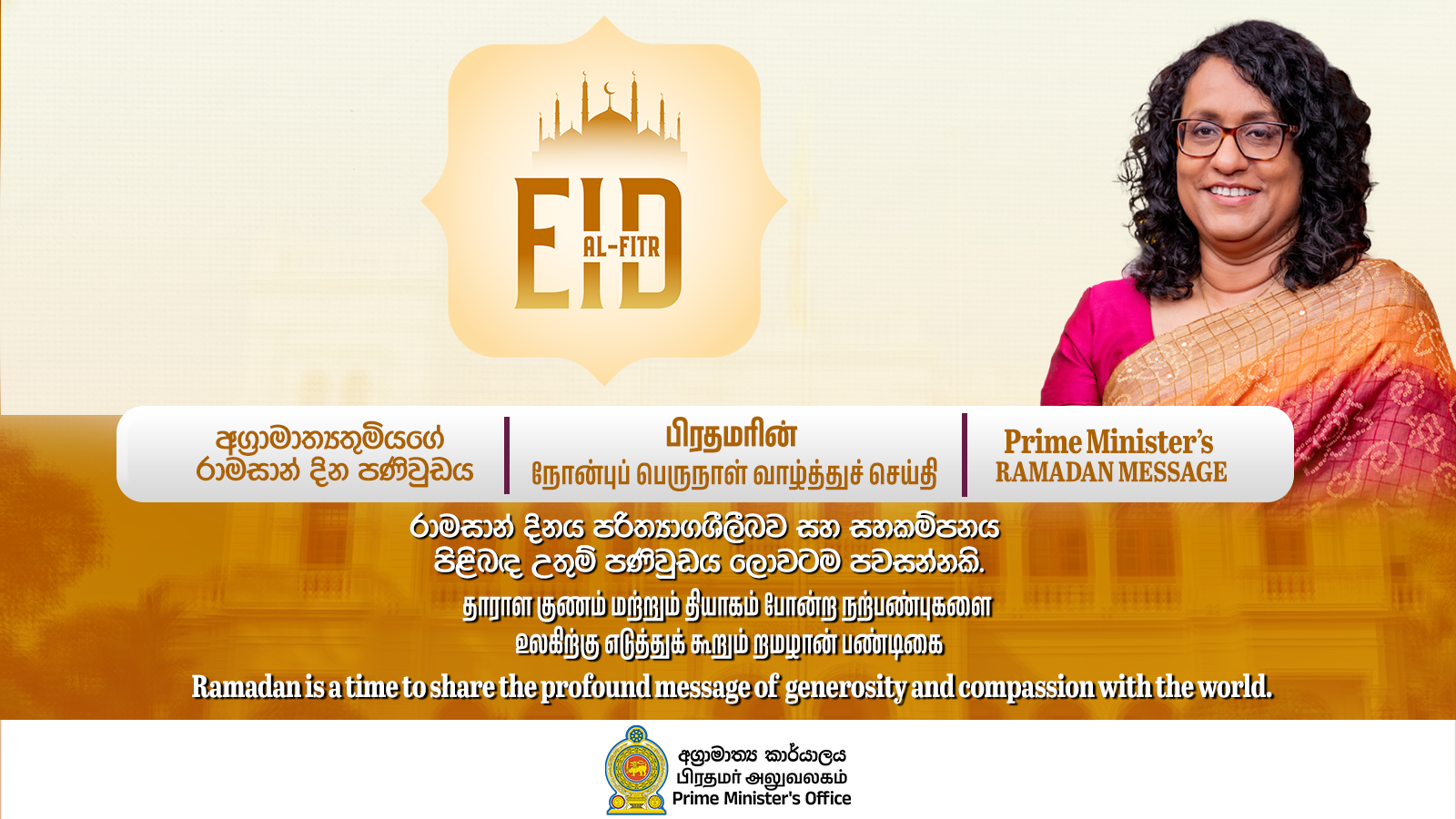News
Researchers discover new variant of Sri Lankan aquarium fish

by Ifham Nizam
A new variant of a popular Sri Lankan aquarium fish has been discovered by local and foreign researchers.
The freshwater fish, genus Rasbora, (commonly called ‘dandiya’) is one of the most diverse groups of freshwater fishes in tropical Asia.
In Sri Lanka, previous studies have shown that there are five species (Rasbora dandia, R. microcephalus, R. wilpita, R. naggsi, and R. armitagei) of which the last three are endemic to the island. This diversity is remarkable when compared with peninsular India, which is about 25 times the size of Sri Lanka but contain only four species of Rasbora.
Biologists earlier believed there were only five varieties of the popular aquarium fish endemic to Sri Lanka. However, with the discovery of the sixth species, Rasbora has gained a new reputation among Sri Lankan freshwater fish breeders, hobbyists and harvesters.
The researchers carried out multiple analysis using “finer geographic sampling and greater sample sizes”, thereby corroborating the validity of six species of Rasbora (scientifically called as ‘Cyprinidae’) in Sri Lanka.
The team of researchers have combed a sampling of 90 sites across Sri Lanka to identify the new species. The team consisting of Hiranya Sudasinghe of Evolutionary Ecology and Systematics Lab, Department of Molecular Biology and Biotechnology, University of Peradeniya, Rohan Pethiyagoda of Ichthyology Section, Australian Museum, Sydney, NSW, Australia, Ranasinghe Hettiarachchige Tharindu Ranasinghe of Butterfly Conservation Society of Sri Lanka, Malwana, Rajeev Raghavan of Department of Fisheries Resource Management, Kerala University of Fisheries and Ocean Studies (KUFOS), Kochi, India, Neelesh Dahanukar of Indian Institute of Science Education and Research (IISER), Pune, India and Madhava Meegaskumbura of Guangxi Key Laboratory of Forest Ecology & Conservation, College of Forestry, Guangxi University, Nanning, China.
Sudasinghe told The Sunday Island that more extensive sampling of Rasbora in India, and analysis based on multiple markers may reveal “a more complex phylogenetic topology” (diversity).
“The Sri Lankan diversification derives from a common ancestor which arrived from India during a sea-level low-stand in the mid-Miocene (15.1 Ma [95% HPD: 11.5–19.8 Ma]), when the present-day island was sub aerially connected to the Indian subcontinent by a broad isthmus”, he added.
Rasbora is generally believed to have arrived in the island from the Indian sub-continent centuries ago when Sri Lanka stood geographically merged with India. In the latest study, researchers confirm this belief.
“Our analysis suggest that Sri Lankan Rasbora derive from a Mid Miocene, India to Sri Lanka dispersal”, he noted, and added that Sri Lankan Rasbora diversity is higher than that of the Indian peninsula.
The Sri Lankan diversity of Rasbora provides an opportunity to understand the evolutionary and phylogenetic relationships of freshwater fishes in the island. Understanding the bio geography, phylogenetic and the evolutionary relationships of species are pivotal in formulating effective assessments of the conservation status of species as well as to draw up species conservation management plans.
However, such studies are still at very early stages when it comes to the freshwater fishes in Sri Lanka.
The first-ever molecular phylogeny of Sri Lankan Rasbora and reassess the taxonomic identities of the five species of Sri Lankan Rasbora based on an island-wide survey. In this study, based on molecular, morphological and statistical analyses using finer geographic sampling, validate the five putative species of Rasbora previously recognized in Sri Lanka.
In addition, a new species of Rasbora was discovered from eastern Sri Lanka. This new species was named Rasbora adisi. The species name “adisi” means mysterious or enigmatic in Sinhala: an allusion to the cryptic nature of this species.
The new species is found in eastern basins in Sri Lanka such as Gal Oya, Menik River and Kumbukkan River and show the closest resemblance to Rasbora naggsi. However, the new species is different from R. naggsi by a combination of morphological characters in addition to been genetically distinct.
Latest News
Laugfs LPG to cost more

Laugfs Gas PLC, has increased its price of domestic Liquefied Petroleum Gas (LPG).
Accordingly,
The price of a 12.5 kg cylinder has been increased by Rs. 420 to Rs. 4,100
The price of a 5kg cylinder of Laugfs LPG has been increased by Rs.168 to Rs.1,645.
Latest News
Petrol prices reduced by Rs. 10 from midnight today [31]

The Ceylon Petroleum Corporation (CPC) has announced a reduction in the prices of petrol by Rupees Ten, with effect from midnight tonight (31st March 2025).
Accordingly, the new fuel prices are as follows:
Petrol Octane 92 – Rs. 299
Petrol Octane 95 – Rs. 361
Auto Diesel – Rs. 286
Kerosene – Rs. 183
Super diesel – Rs. 331
News
Ramadan is a time to share the profound message of generosity, and compassion with the World – PM

Prime Minister Dr Harini Amarsuriya in her Ramadan message says that Ramadan is a time to share the profound message of generosity, and compassion with the World.
The full text of the Prime Ministers Ramadan Message:
“As our Islamic brothers and sisters in Sri Lanka and around the world celebrate the sacred month of Ramadan, I extend my heartfelt greetings and best wishes for peace, prosperity, and spiritual fulfillment.
Ramadan is a time of deep reflection, prayer, and self-discipline. It is a period that teaches us the values of compassion, generosity, and unity. Fasting during this holy month is not only an act of devotion but also a reminder of the struggles faced by those less fortunate. It is a time to cultivate patience, humility, and gratitude while strengthening our bonds with family, friends, and the community.
At its core, Ramadan embodies the spirit of kindness, forgiveness, and charity. The practice of Zakat and Sadaqah during this time highlights the importance of sharing with those in need and reinforcing the principle that true prosperity lies in giving and uplifting others. These values are universal and resonate deeply with all communities, fostering harmony and understanding among people of different faiths and backgrounds.
Sri Lanka is a nation rich in diversity, and it is through mutual respect and solidarity that we continue to strengthen our collective future. The spirit of Ramadan reminds us of the need for coexistence, tolerance, and the pursuit of justice and peace.
As the month of fasting culminates in the joyous celebration of Eid, let us carry forward the lessons of Ramadan—compassion, unity, and selflessness—into our daily lives. May this blessed month bring peace to our hearts, our homes, and our nation.
Ramadan Mubarak!”
-

 Sports2 days ago
Sports2 days agoSri Lanka’s eternal search for the elusive all-rounder
-

 Features6 days ago
Features6 days agoCelebrating 25 Years of Excellence: The Silver Jubilee of SLIIT – PART I
-

 Business6 days ago
Business6 days agoCEB calls for proposals to develop two 50MW wind farm facilities in Mullikulam
-

 Business4 days ago
Business4 days agoAIA Higher Education Scholarships Programme celebrating 30-year journey
-

 News3 days ago
News3 days agoGnanasara Thera urged to reveal masterminds behind Easter Sunday terror attacks
-

 Features6 days ago
Features6 days agoNotes from AKD’s Textbook
-

 News2 days ago
News2 days agoComBank crowned Global Finance Best SME Bank in Sri Lanka for 3rd successive year
-

 Features2 days ago
Features2 days agoSanctions by The Unpunished











